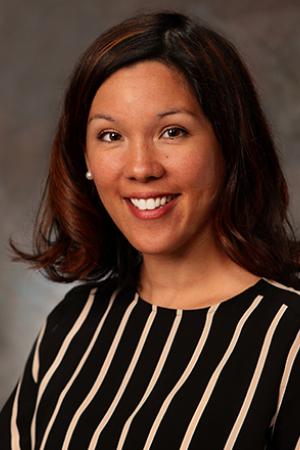
From nausea to sensitivity to light to pain in the face or neck, the symptoms of migraine headaches wreak havoc on the lives of some 38 million Americans. If you’re one of them, there are treatments today that can make a profound difference in your quality of life.
“Migraine headaches are different from typical headaches. They can be very severe and last anywhere from two to three days,” said Amanda Nies, DO, of Holland Hospital Neurology. “While the underlying cause of migraine is not fully understood, ongoing research has pointed to many contributing factors that have led to several treatment interventions.”
Here’s a look at some of those interventions:
Medication: There are a variety of medications designed to treat migraines. These medications fall into two main categories: pain/symptom-relieving (also called abortive or acute) and preventive. At the first signs of migraine, medications used to alleviate symptoms range from over-the-counter pain relievers like aspirin or ibuprofen to prescription pills, shots or nasal sprays to anti-nausea drugs. Abortive medicines used in the treatment of migraine act on specific receptors in the brain and blood vessels in the head to stop a headache once it has already started.
If you have frequent, long-lasting or intense headaches that don’t respond well to treatment, your health care provider might recommend a medication to prevent migraines. Options include blood pressure-lowering medications, antidepressants, anti-seizure drugs and CGRP (calcitonin gene-related peptide) inhibitors. More recently approved by the Food and Drug Administration (FDA), CGRPs are given monthly or quarterly by injection and are showing new promise in the fight against migraines.
“Taming a migraine has become increasingly focused on prevention, halting pain or symptoms before they ever begin. One way to do this is to take certain medicines every day,” Dr. Nies said. “Another approach is learning your migraine patterns and triggers, and then taking medication or using other interventions to disable the headaches.”
Supplementation: Non-prescription and prescription medications are not a cure-all or for everyone. In certain cases, such as women who are or hoping to become pregnant and those who aren’t experiencing enough relief from prescriptions or have problems with the side effects, supplements or herbs like magnesium, feverfew, butterbur and Coenzyme Q10 may be a safe alternative. However, before you consider taking any of these supplements, be sure to talk to your doctor.
Procedures: For those with chronic migraines (headaches on 14 or more days per month), your health care provider might recommend procedures like Botox (onabotulinumtoxinA) injections or nerve blocks.
Devices: Electrical stimulation devices or neuromodulators have also been cleared by the FDA for treatment of acute migraine, as well as prevention of migraine. These devices use electrical or magnetic pulses to calm electrical waves linked to migraines. They are noninvasive, have minimal side effects and may help individuals who have health or tolerability issues that limit their success with migraine medications.
Lifestyle Modification: Outside of the above treatments, there are lifestyle modifications and other things you can do to soothe migraine headaches, such as:
- Practicing relaxation techniques like biofeedback, meditation or yoga
- Ensuring you are getting enough sleep and eating a healthy diet
- Avoiding or limiting your headache triggers, such as stress or alcohol
- Exercising regularly
- Keeping a headache diary to learn more about your triggers
- Considering counseling or cognitive behavioral therapy
“Everyone experiences migraine headaches a little differently, so there’s no one-size-fits-all when it comes to treatment,” Dr. Nies added. “The good news is, by partnering with your doctor, together you can find an approach that works best for you.”
Dr. Amanda Nies, sees patients at Holland Hospital Neurology. For an appointment, call (616) 396-7366.
